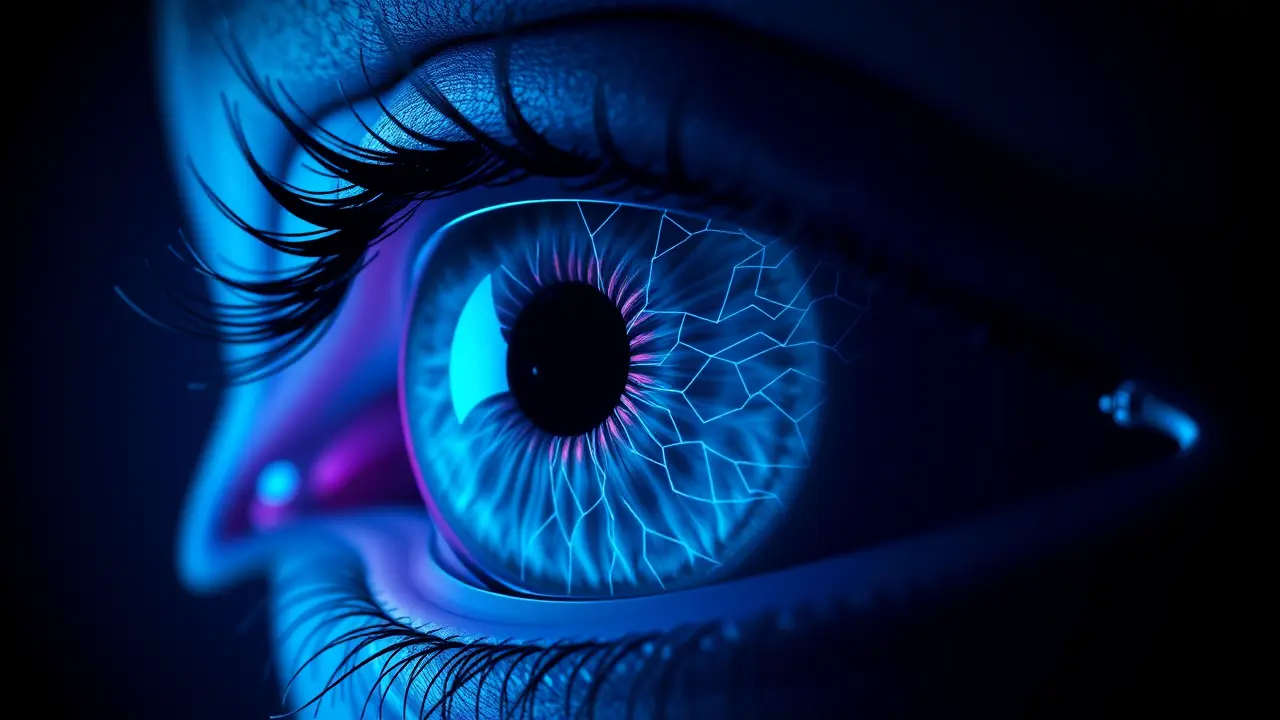
Scienceneuroscience
Your eyes could reveal how fast you’re aging, scientists say
KE
Kevin White
21 hours ago7 min read3 comments
In a groundbreaking fusion of biotechnology and artificial intelligence that feels ripped from the pages of a near-future medical thriller, researchers at McMaster University have unveiled a startling discovery: the intricate network of vessels in your eyes may serve as a high-definition dashboard for your entire cardiovascular system and, more profoundly, your rate of biological aging. This isn't science fiction; it's a data-driven reality emerging from the sophisticated analysis of retinal scans, genetic information, and comprehensive blood data from a colossal cohort of over 74,000 individuals.The central, compelling finding is that the architecture of our retinal vasculature tells a powerful story—specifically, that simpler, less branched, and more sparse eye vessels were strongly and consistently correlated with a higher risk profile for cardiovascular disease and an accelerated pace of biological aging. Think of a healthy retinal network as a lush, dense, and complexly branched tree, its capillaries reaching every corner to deliver oxygen and nutrients with maximal efficiency.The unhealthy pattern, by stark contrast, resembles a withering sapling with fewer, straighter, and less interconnected branches, a clear sign of systemic distress. This research, sitting at the thrilling intersection of ophthalmology, cardiology, and computational biology, represents a paradigm shift in preventative medicine.The traditional methods for assessing heart health and aging—blood pressure cuffs, cholesterol panels, and even more invasive procedures—are being complemented, and potentially superseded, by a simple, non-invasive, five-minute retinal scan. The implications are staggering.Your optometrist's office could soon become the front line for early detection of silent killers like hypertension and atherosclerosis, long before they manifest as a heart attack or stroke. The study leverages the retina's unique status as the only part of the human body where we can directly and non-invasively visualize microvasculature.These tiny blood vessels are a mirror reflecting the health of similar vessels throughout the body, including in the heart and brain. Damage from high blood pressure, inflammation, and oxidative stress leaves its signature here first, a microscopic warning sign written in light and blood.By applying advanced machine learning algorithms to this treasure trove of imaging and biological data, the McMaster team has begun to decode this signature, translating the complex patterns of our retinal landscape into a quantifiable 'aging clock'. This moves us beyond chronological age—the mere number of years we've lived—and into the realm of biological age, a measure of how well our cells and systems are truly functioning.The potential applications cascade across the medical field. Imagine a future where a routine eye exam not only updates your glasses prescription but also provides a personalized risk assessment for future cardiac events, allowing for hyper-targeted lifestyle interventions years in advance.It could revolutionize drug development, providing a rapid, non-invasive biomarker to test the efficacy of new anti-aging or cardioprotective therapies. For the field of biogerontology, it offers a practical tool to measure the success of interventions aimed at slowing or even reversing the aging process itself.Of course, this frontier of diagnostic medicine is not without its ethical and practical challenges. Widescale implementation would require standardization of retinal imaging technology and the AI interpretation models across clinics globally.It raises questions about data privacy—who owns this deeply personal biological data, and how is it protected? There is also the risk of creating a new form of health anxiety, where individuals become fixated on their 'retinal age' score. Yet, the promise is undeniable.This research, led by visionary scientists who are effectively building a bridge between the observable and the molecular, heralds a new era of predictive, personalized, and preemptive healthcare. It suggests that the most profound insights into our internal health and our journey through time are, quite literally, staring back at us every time we look in the mirror.
#featured
#aging
#eye health
#cardiovascular risk
#retinal scans
#biological age
#McMaster University
#research breakthrough
Stay Informed. Act Smarter.
Get weekly highlights, major headlines, and expert insights — then put your knowledge to work in our live prediction markets.
Related News
© 2025 Outpoll Service LTD. All rights reserved.
